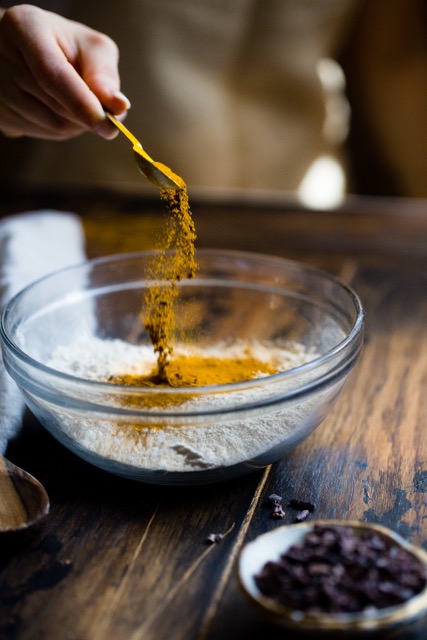Have you noticed that turmeric is getting a lot of press these days? It’s a spice that is touted to ease everything from inflammation to arthritis, and improve memory skills and even lift depression. It has also gotten a lot of attention from the medical and scientific community worldwide.
Turmeric is a spice that has been used in Asia and Middle Eastern cuisine and medicine for thousands of years. It is a flowering plant that part of the ginger family. Like ginger, the rhizomes, or roots are used boiled or fresh, then dried and ground into a fine powder. While the medicinal properties of turmeric have been known for millennia, the ability to determine the exact pathways in the body has only recently been studied.
The active ingredient in in turmeric is the polyphenol curcumin and has been shown to target free radicals to stimulate the body’s own antioxidant defenses. This reduces oxidative stress and inflammation. What’s more, since inflammation is associated with a variety of conditions affecting a number of our bodily systems, the positive implications of curcumin appear to reach far beyond what we currently know. For example, it may have a positive effect on Metabolic syndrome, which includes hypertension, obesity, insulin resistance and high cholesterol.
Turmeric and curcumin have a long and established safety record. The World Health Organization and the European Food Safety Authority support its use with an allowable daily intake of up to 3 mg per kilogram of body weight (0-3mg/kg bw). Even with the long safety record, keep in mind that negative side effects such as diarrhea, headache, rash and nausea have occurred in some people.
From cooking to medicine, turmeric/curcumin is popular worldwide. The health benefits appear to act via its antioxidant and anti-inflammatory pathways. Research shows that curcumin may also help with arthritis, anxiety, and high cholesterol. Keep in mind when cooking or ingesting a curcumin supplement, combine it with a bit of black pepper, or piperine, which will increase absorption significantly.
Back To Blog

